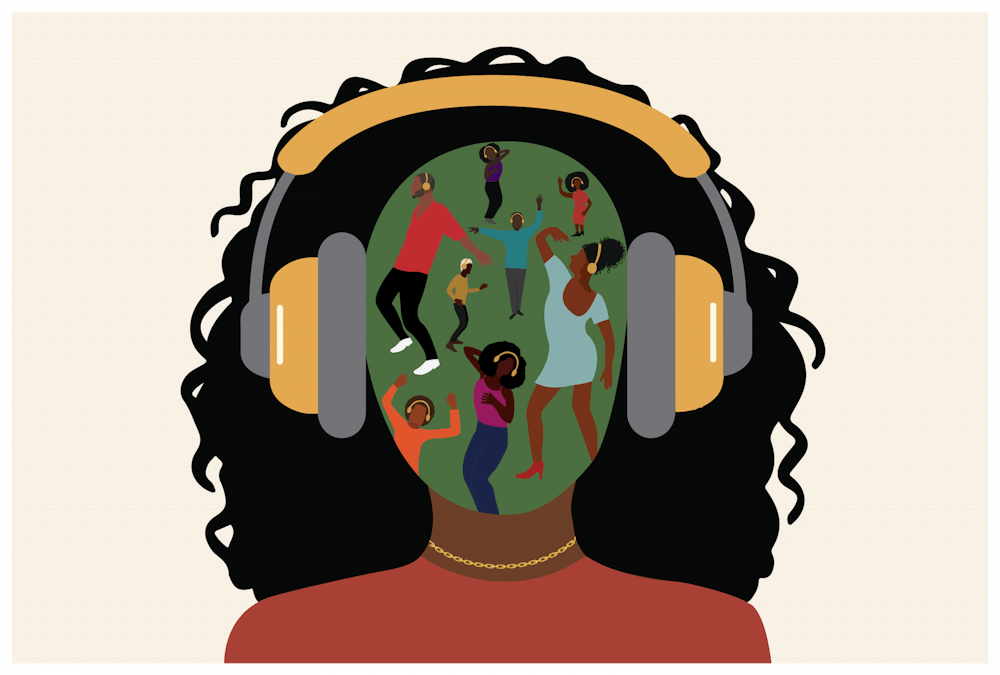It's critical to highlight the significance of music in the Black community in order to provide more musical opportunities for Black students at a predominantly white institution. This is particularly important during Black History Month when the history of Black trauma is amplified rather than Black history being honored.
Black music is historically known for its sublime messages within lyrics, linked to both the past and present generations. The Black Community gets called "ghetto" or "ratchet" for partaking in their own culture, while other races may not experience the same criticism from listening to rap or trap music, for example.
The bias that Black people face as a result of a lack of respect for their culture must be acknowledged. Black voices should be amplified, and it should be encouraged for them to use music to express themselves and tell their stories.
“A lot of times, because Black music is so popular, people just think they know it. They just know the songs, they know the artist, but Black music is beyond celebrities and stars and record sales,” said Birgitta Johnson, Associate Professor of Ethnomusicology at the School of Music.
Johnson also said music can have a historical aspect.
"You can learn about a person’s culture and their history and their values and how they see the world through how they make music," Johnson said.
Understanding the origins of the music you listen to can be helpful not only to you as a listener, but also to the person who is delivering the message.
“It’s important for people to be educated on where music comes from and how to appreciate it,” Taylor McCullough, a first-year music performance student, said.
Much of Black music originates from religion and a genre of music known as spirituals. This genre was created by early generations of Black Americans who paired African cultural history with the experiences of bondage and other hardships.
"Spirituals were created by enslaved African Americans, they did not even know how to spell freedom, but they could sing about it," Johnson said.
Black USC students should be allowed to showcase their talent and express what music truly means to them. Music should be used as an outlet of outreach, not a limitation. A student's passion will be weakened if they are limited in what they can do.
"A lot of what happens in music school is focused either on classical music and jazz...a lot of Black students want to get into jazz, but the program is so exclusive and it's especially hard for vocalists," Nigel Grant, a BA fourth-year music student, said.
If students are given a selection of songs from which to choose for performance and all of the songs are modern or classical, they may feel limited in their self-expression. It is important that those in positions of authority over music programs recognize the importance of diversity in the musical styles they choose.
“The best way to amplify Black voices is just to give them a space and just to say 'do what you want to do,'” Grant said.
In Grants’ view, “to deny our passion, is to deny our creation.”
With his current attempt to form a Black student gospel choir, Grant strives to convey the message that Black music is art.
"We tend so much just to belittle Black music in the same way we belittle so much of the Black experience because it’s unfamiliar … but it’s just art. It’s as good as Beethoven or Bach. It’s the same. It's art, it’s all art,” Grant said.
McCullough also shared why giving spaces for Black students to practice music they want is crucial.
"Just being around other people ... gives you a different outlook on what somebody else that looks like you may be going through,” McCullough said.
When students aren't allowed to pursue a certain skill set, it's discouraging. Music is meant to cultivate, it shouldn’t be used as a pawn when students have no choice but to conform to the traditional standards. Music is a tool for expression, taking that away would leave students voiceless.
Music has been an outlet throughout the torment the Black community has faced. As Black History Month comes to a close, we must continue to uplift Black voices, Black culture and Black history year-round.

